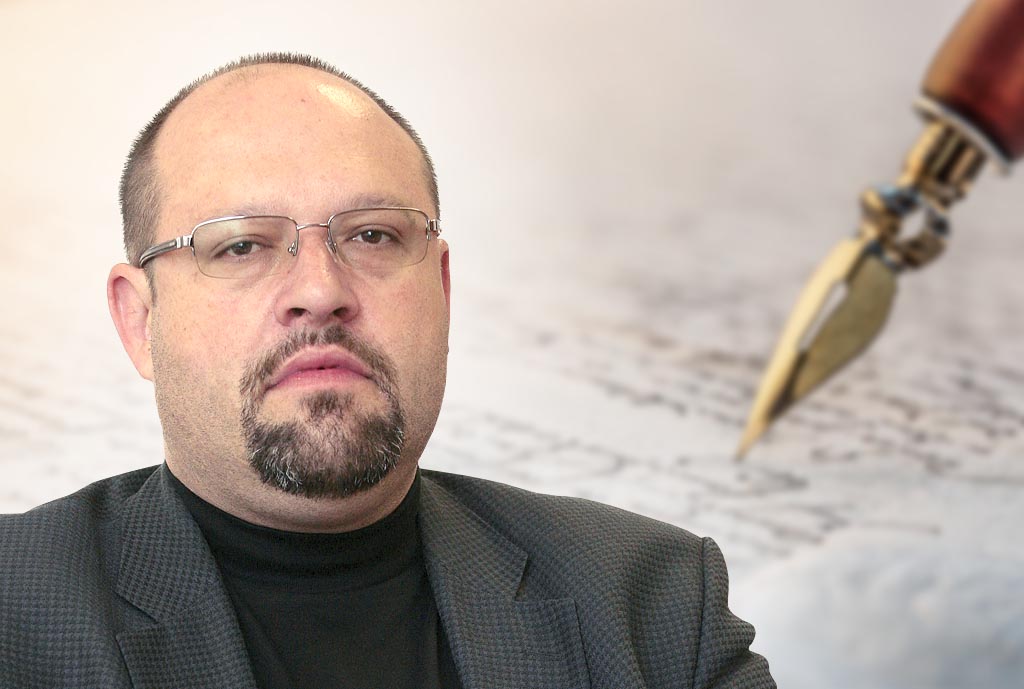By: Dr Matevž Tomšič
The brutal and unprovoked aggression launched by Putin’s Russia on neighbouring Ukraine more than a year ago was met with universal resistance in the freedom-loving world. It led to the fact that, after a long time, democratic Europe united and took the side of the attacked country.
Of course, countries differ in their level of determination in terms of readiness for concrete – including military – aid (the United Kingdom and the eastern members of the European Union show more readiness, Germany less, and Hungary none at all). However, there are few who would side with the aggressor. In these cases, it concerns groups from either the left or the right fringes of the political space.
Slovenia differs from most EU member states in the presence of strong pro-Russian sentiments. In this respect, it is more similar to a kind of Serbia than to its neighbours. And more importantly, sympathies with Putin’s oppressive regime are not (only) cultivated by people from the political and social fringes, but by holders of power and influence. Members of the elite, therefore, led by the former president and the last head of the Party’s central committee, Milan Kučan. Some of them are also recipients of high Russian state awards. Now that the criminal nature of the aggression and the barbarism of the Russian soldiers are known, they no longer dare to directly defend Russia and its autocrat. That is why they do it in a covert way.
Thus, Kučan and the company recently made the public “happy” again with an appeal to world powers to stop the war in Ukraine. It would be commendable if it was addressed to the one who is solely responsible for it, namely President Putin. He could stop the war in an instant by ordering his army to withdraw from the occupied territory of a neighbouring country. However, the authors of the call listed Russia in last place, behind the European Union, NATO, and the United States of America. It is true that at the beginning they wrote that they support Ukraine, but it is hard to believe that they mean it sincerely. More than anything, it was a matter of pretence (or “lip service”, as the Americans say). Not only did they fail to condemn Russia’s crimes, by writing that Ukraine is “a victim of a proxy war between the two leading nuclear powers, Russia and the United States”, they actually relativised responsibility for all the casualties, destruction and suffering in this country over the past year, although the aggressor, namely Russia, is solely responsible for this.
The true intention of these false peacekeepers was revealed in their opposition to military aid to Ukraine, saying that “accumulating the deadliest weapons will not bring peace and stability to Europe”. It is a big deception, because only an effective Ukrainian defence – which, of course, requires state-of-the-art weaponry – can stop the threat to European security by the Putin regime. In Ukraine, not only the freedom of its people is being defended, but of all Europeans. By denying military aid, they are literally forcing this country, its army and its people into capitulation and submission to its larger neighbour.
This group’s calls for negotiations are especially duplicitous. How they imagine this can be seen from the following statement: “Negotiate means responsibly looking for solutions and agreeing to deviations on both sides…” According to them, the Ukrainian side should also make concessions. This is nothing more than a call to the Ukrainians to give up part of their territory; the one Russia occupied and illegally annexed. Moreover, the West should obviously force them to do so.
Behind the apparent peacekeeping and calling for an end to the war is the promotion of Putin’s agenda. Russia’s desire is to normalise relations with the West, while keeping the territory it has forcibly appropriated. If the European Union and the United States of America agreed to this, they would trample on their fundamental values of freedom, democracy, and respect for national sovereignty. But these values are not an “intimate option” for our Putinists.
